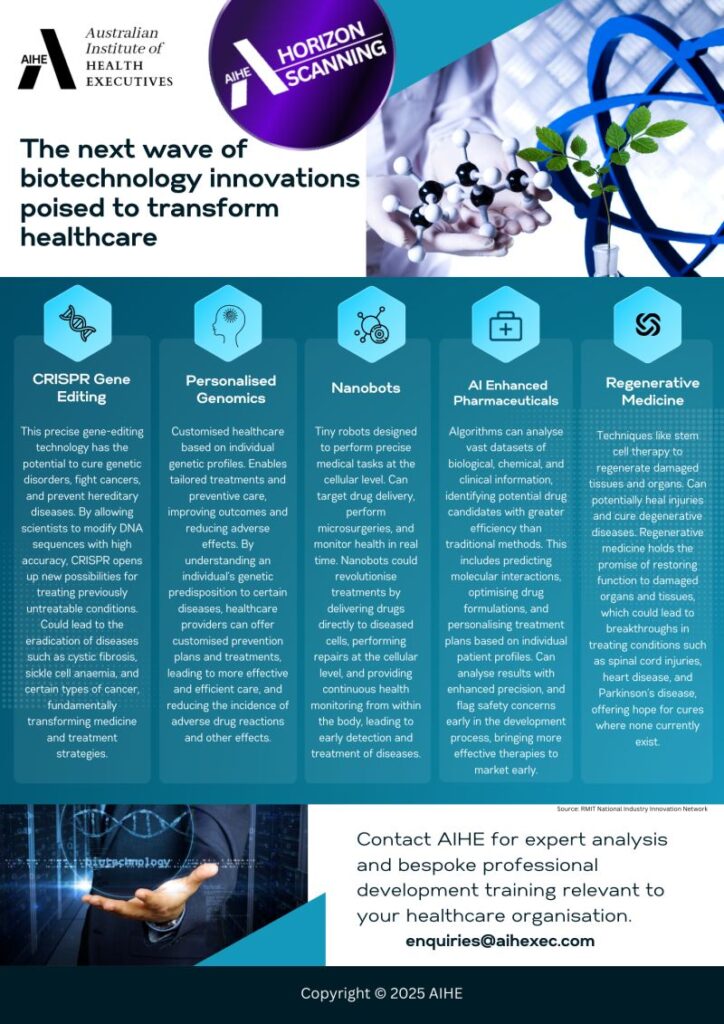Horizon Scanning
From CRISPR (Clustered Regularly Interspaced Short Palindromic Repeats) to Nanobots, these recent advancements in biotechnology are precariously poised to fundamentally reshape the very essence of healthcare.
Precision medicine, driven by genomic sequencing and analysis, allows for tailored treatments to be developed based on individual genetic profiles, which will help significantly improve efficacy and reduce potential adverse effects.
Gene editing technologies like CRISPR hold great promise for curing genetic diseases by allowing scientists to make precise changes to DNA, such as correcting genetic mutations or disabling genes.
The development of novel biologics, including monoclonal antibodies and cell-based therapies, offers targeted approaches to manage complex illnesses such as cancer and autoimmune disorders.
Techniques like stem cell therapy utilised in regenerative medicine holds the promise of restoring normal function to damaged organs and tissues.
These innovations not only have the potential to extend patients’ lifespans, but also to greatly enhance their overall quality of life, marking a significant step forward in the evolution of medical practice and healthcare delivery, very likely in our own lifetimes.
A digital hub is a setting that locates clinical staff and digital medicine capabilities together to provide better coordinated care for patients, whether the patients are in the inpatient setting, the ambulatory setting, or at home,
UMass Memorial Health has launched a digital hub to centralise digital medicine capabilities and redefine patient care delivery across inpatient, outpatient, and home settings.
The digital hub, which opened in September 2024, merges the health system’s remote patient monitoring, patient transfer and access, and in-home care management under one roof.






